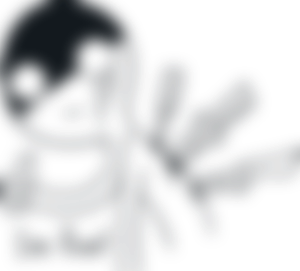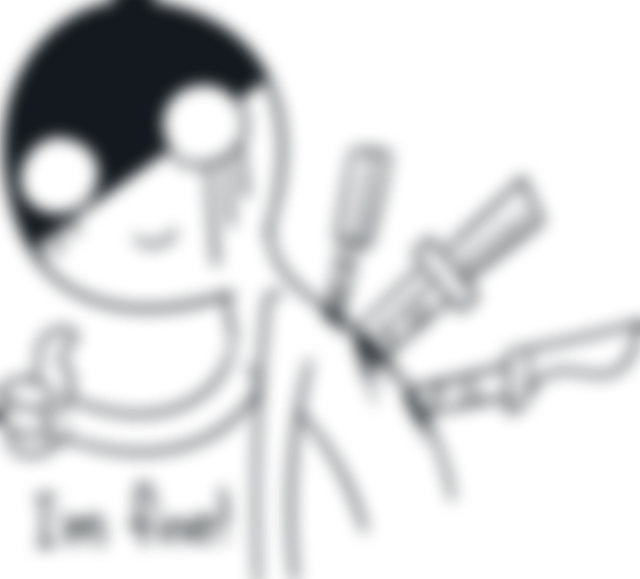Unfiltered truth: What depression really looks like

People talk about depression like it's nothing, most people don't even understand it, so they don't care. For me, a serious stage in my depression was numbness. I don't know about you, but sometimes I wish I could tell someone SOS.
What does depression really look like?
Depression looks different for everyone. It can be difficult to diagnose depression because symptoms may vary from person to person and it can be hard to tell if some of the changes in behavior are due to depression or if they are part of your friend’s personality.
Some people who have been diagnosed with depression may have no visible symptoms at all. This is called “depression in disguise,” and it can be especially hard on family members who don't know what they're dealing with until they discover that their loved one has been suffering quietly for months under the surface.
Others might have symptoms but hide them well because they don't want anyone else knowing about them—and sometimes even themselves! Some people with depression might also try to avoid going out or doing things as much as possible so as not to draw attention towards themselves (this kind of behavior goes beyond just being antisocial). This type of behavior is known as "passive" or "masked."
It's also possible that someone with depression might appear happy most days but experience extreme emotionality and irritability at times (too much unpredictability). This type of person should not be confused with someone who is simply naturally moody: The highs come more often than usual and are more intense than usual when they do happen; plus there isn’t necessarily any obvious trigger behind them—it could just happen out of nowhere!
Feelings of sadness, emptiness or hopelessness
Some signs of depression can be hard to notice because they may be subtle or not always present. Some people might have a mild form of depression that doesn't cause noticeable symptoms.

Some examples are:
Feelings of sadness, emptiness or hopelessness
Feeling depressed or losing interest in things you once enjoyed
Feeling guilty, worthless and helpless, as if you're a failure at everything
Not being able to concentrate on anything for very long
Restlessness and irritability; feeling like you want to move all the time (psychomotor agitation)
Being tired all the time
Anger, irritability or frustration, even over small matters.
Anger, irritability or frustration, even over small matters, can be another common symptom of depression. In some cases, the anger is directed at yourself. You might find yourself feeling guilty for not being able to accomplish your goals and beating yourself up over it. But in other cases anger may be directed at others—your boss for asking too much from you; your spouse who doesn't understand why you're so tired all the time; even your kids who are making a mess of their rooms while they play quietly in them (because let's face it: no one plays quietly).
In either case—directed inward or outward—anger is often a way to cope with painful emotions that we don't want to feel, like sadness or loneliness. Anger can also serve as protection against feeling powerless by allowing us to regain some sense of control over our lives when we otherwise feel like there isn't anything we can do about our situation. And sometimes anger comes up because people simply don't understand what depression looks like in someone else's life—and so they react negatively when a loved one does something (like yell at them) that seems unreasonable based on what they know about that person's personality before being diagnosed with depression
Loss of interest or pleasure in most or all normal activities, such as sex, hobbies or sports
Loss of interest or pleasure in most or all normal activities, such as sex, hobbies or sports.
If you're depressed, it's common to lose interest in things you once enjoyed. You may also find that you lose your appetite and have trouble sleeping. This can make depression a difficult illness to deal with since your energy levels are lower due to lack of sleep, making it harder for you to get out of bed and do the things that help you feel better.
Sleep disturbances, including insomnia or sleeping too much.
Sleep disturbances are one of the most common symptoms of depression. Symptoms may include difficulty sleeping, sleeping too much, waking up too early in the morning and disturbed sleep patterns (for example, staying awake at night or waking several times during the night).
Tiredness and lack of energy, so even small tasks take extra effort.
The feeling of exhaustion and lack of energy, even when you've gotten enough sleep and don’t do much during the day, is one of the main signs of depression. It can leave you feeling unmotivated to do anything at all. Even getting out of bed in the morning seems like a daunting task. If this sounds familiar, it's important to talk with a professional so they can help identify other possible causes—like an underlying medical condition or medication side effects—or offer ways to manage your symptoms.
Reduced appetite and weight loss or increased cravings for food and weight gain
You may have heard that depression can cause a person to lose their appetite, but it’s also true that there is an increase in cravings and weight gain. The reasons for this are varied. Some people believe that the lack of energy they experience while depressed makes them less likely to do anything active other than eat; others say they crave food because of the way it makes them feel (calm or happy).
Regardless of why you're gaining weight, it's important not to neglect your needs for nutrition as well as exercise if you want to stop gaining and start losing instead! If you find yourself craving food when you're feeling down more often than not, try keeping track of what kinds of food help soothe your moods—and keep those things around for when those feelings come up again.
Anxiety, agitation or restlessness
Feeling restless and unable to relax (or even knowing where to start) is a common symptom of depression. It can be hard to sit still when you're depressed because your mind won't stop racing, and you may feel as if there's no escape from your thoughts. You may also find yourself feeling agitated physically—you might want to pace back and forth or fidget with something in your hands or on the table in front of you.
Slowed thinking, speaking or body movements
Depression can also slow your thinking, speaking and body movements. This might mean you have trouble concentrating, forming thoughts or finding the right words to express yourself. It may seem like other people's minds move quickly, but for you it takes time even just to think of what to say next in a conversation. Depression slows your activities down as well: You may be so tired from being sad that it takes effort just to get out of bed in the morning; you may walk more slowly than usual; you may feel too sluggish to complete tasks at work or home without procrastinating until later in the day or week.
Feelings of worthlessness or guilt, fixating on past failures or self-blame.
NOTE

Frequent or recurrent thoughts of death, suicidal thoughts, suicide attempts or suicide. Suicide is a risk in depressed people even if they are not talking about it. If you suspect that a friend or family member has become suicidal, talk to them and get help immediately. Signs someone may be suicidal include the person talking about ending their life; withdrawing from friends and family; becoming depressed; giving away possessions; losing interest in things once enjoyed; experiencing a change in sleep patterns; going on a "death mission" by engaging in reckless behavior; feeling trapped with no way out; feeling unbearable pain that can't be relieved; feeling like a burden to others; losing interest in personal care; and using alcohol or drugs more often.
If you are concerned that a loved one has become suicidal, talk to them and get help immediately. Signs someone may be suicidal include the person talking about ending their life; withdrawing from friends and family; becoming depressed; giving away possessions; losing interest in things once enjoyed; experiencing a change in sleep patterns; going on a "death mission" by engaging in reckless behavior; feeling trapped with no way out; feeling unbearable pain that can't be relieved; feeling like a burden to others; losing interest in personal care; and using alcohol or drugs more often
Suicide is a risk for people who have been diagnosed with depression even if they are not talking about it. If you suspect that someone close to you might harm themselves, talk openly about your fears. You should also talk to them as soon as possible if you notice any changes like drastic mood swings or personality changes (e.g., anger problems), thinking of suicide, recent losses or trauma (e.g., death of loved ones), drug/alcohol abuse or financial difficulties


